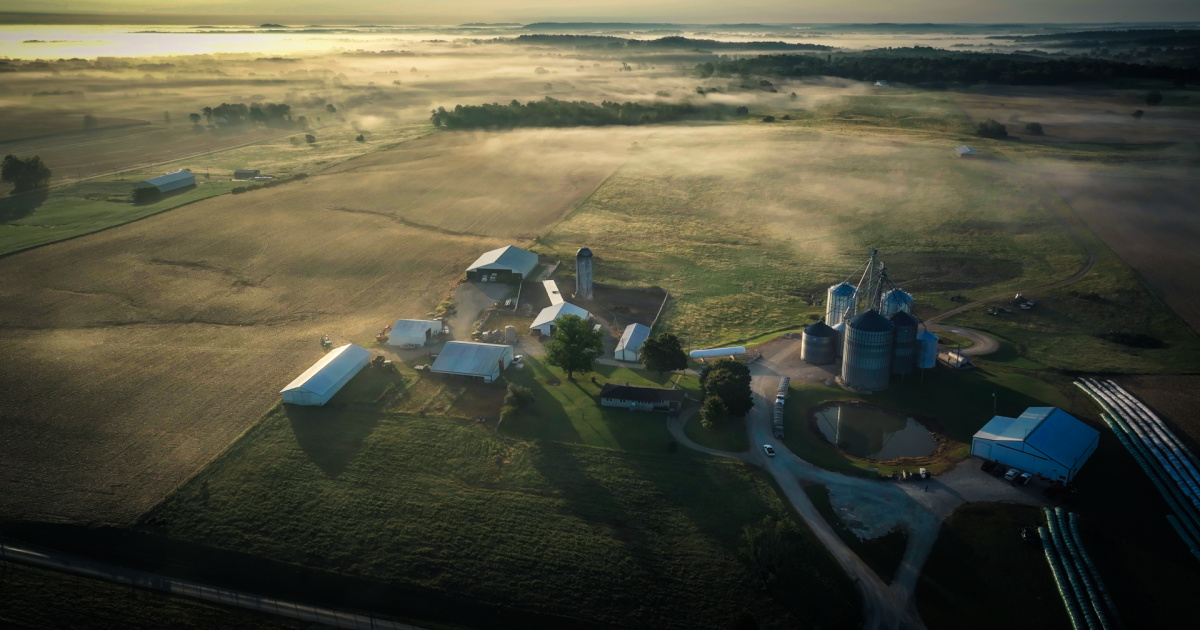Farmland Transition Beyond the State Line
Posted on Sep 6, 2024
Discussion panel at Tennessee Farm Bureau meeting brings attention to the issue.
COLUMBIA, Tenn. – Earlier this year, Kentucky Farm Bureau (KFB) launched the Kentucky Farmland Transition Initiative (KFTI) to bring attention to production farmland losses due to a steady decline in the number of farms in this state, and decreases in farmed acreage over the last several years.
The initiative has three main objectives: 1) increase public education about and involvement in farmland transition; 2) gather and provide technical assistance and localized resources to assist families who desire to transition farmland; and 3) pursue state and federal policy development that will help keep production agriculture at the forefront of farmland transition and ease common burdens associated with that process.
KFB President Eddie Melton and KFTI Project Coordinator Aleta Botts recently participated in a panel discussion with Tennessee agriculture leaders at a Tennessee Farm Bureau meeting to bring more attention to this issue.
“Ensuring our farms remain in production for future generations is not just a challenge in Kentucky, but across the country,” Melton said. “When we work together as a collective ag industry, we can accomplish so much more and nowhere do we have a better neighbor to work on this and other farm issues than our friends at Tennessee Farm Bureau."
The panel discussion was featured during the TFB President’s Conference and included TFB President Eric Mayberry and Deputy Commissioner for the Tennessee Department of Agriculture Jeff Aiken.
Mayberry said during state policy meetings over the last two years, the subject of farmland transition consistently came up and the panel discussion helped bring more attention to the issue.
“We felt like it was really incumbent upon us to be able to put some extra focus on it,” he said. “Part of our motivation was to have a good robust discussion at our President's Conference about that to help generate some enthusiasm and call attention to it to all of our 95 county Farm Bureau presidents so they could contact their legislators.”
Educating lawmakers and the general public is an important component in moving any farmland transition efforts forward, Mayberry emphasized.
“If we don't get a significant portion of those folks to understand the plight that we're in, we've got even bigger tasks to be able to preserve farmland,” he said. “After a few years of this exponential growth of folks who have been off the farm, I think they’re beginning to see the situations that we're in and that opens the door to have discussions about farmland transition and food security.”
Aiken, a former TFB president, said farmland loss is a significant issue in Tennessee, where agriculture is the number one industry.
“Over the last couple of years, we've experienced significant loss, and in working with the University of Tennessee Institute of Agriculture, ag econ department, they evaluated all 95 counties,” he said. “We have very accurate information for the number of acres that have been lost in every county across Tennessee over the last 15 years. Their number would project that we're losing 9.8 acres every hour in Tennessee. So obviously you can see why we think this is such an issue that needs to be addressed.”
Aiken added that USDA projections say that this country will go through the greatest land transition in history within the next 10 years.
“Part of that can be attributed to the fact that the average age of the farmer is 59 or 60 years old, so there's going to be a transition, and if we can develop programs or initiatives to help transition our farmland to the next generation, that's got to be a high priority I think for Tennessee and Kentucky and every other agriculture state across the country.”
Botts said working together can be one of the keys to bringing attention to the issue and moving forward in efforts to keep farms in business.
“Learning about Tennessee's efforts and sharing our project with TFB is a way we can work together on this challenge of keeping farmland in production,” she said. “We all are on the same team here and want to ensure farmers are at the table when decisions affecting farmland are made.”
Melton said he appreciated the opportunity to share Kentucky’s efforts with TFB leaders and looks forward to more discussions between the two states in the future.
“I feel optimistic that when we work together there is no challenge we cannot overcome on the farm and in our industry,” he said. “Participating in this panel discussion was a great way to move information forward and gain valuable input from our farming neighbors in Tennessee. Together I’m hopeful we can create opportunities for the next generation of farm families."
For more information, go to the KFTI website at https://kyfarmlandtransition.com.
Comments